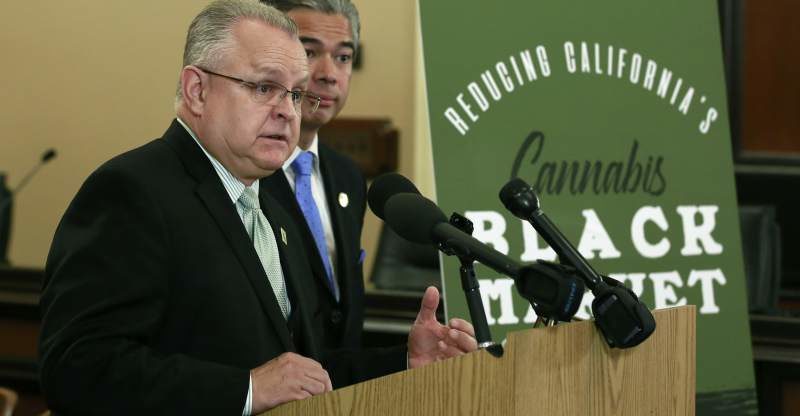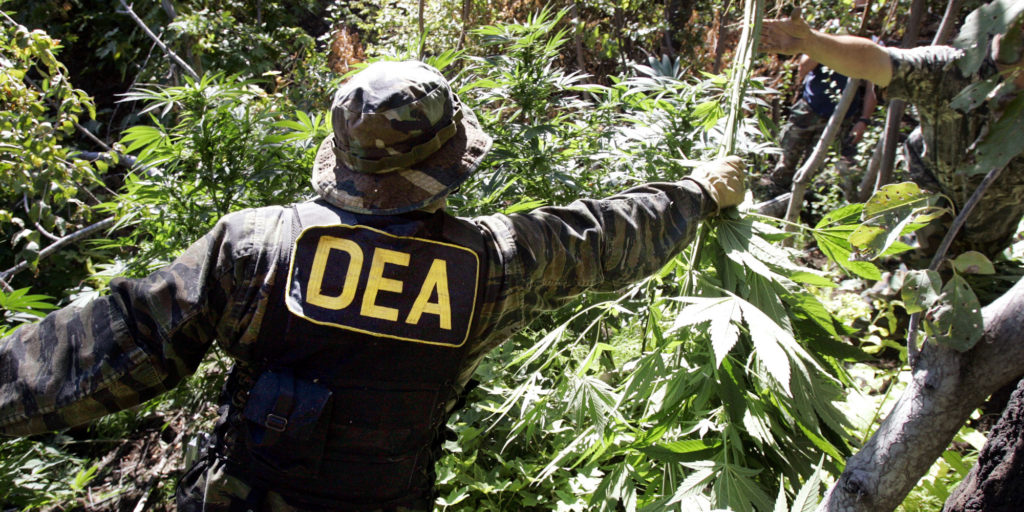When a handful of California lawmakers banded together in 2015 to promote the state’s first regulatory system for medical cannabis, they faced severe headwind from staunchly anti-drug colleagues who saw no upside in supporting any public use of the plant.
Oakland Democratic Assemblyman Rob Bonta remembers his fellow legislators responding in horror as he attempted to whip up support for a pioneering regulatory pot bill.
“They would almost put their fingers in a cross, back away slowly and be like, ‘Cannabis. I can’t have anything to do with that,’ ” Bonta said recently.
“That’s changed a lot over the last two years,” he added.
After California voters embraced recreational cannabis with the passage of Proposition 64 in 2016, a simultaneous and at times shaky evolution took place in the state Capitol. Sacramento regularly attracts national attention for leading the vanguard of the liberal left, most recently in approving a “sanctuary state” law that limits interaction between federal immigration officers and state and local law enforcement.
But groundbreaking state laws are enacted only after legislators make a careful assessment of voter tastes in this heavily Democratic state. Like every statehouse, the California Legislature generally seeks policies that minimize political risk.
Which is why it has been intriguing to watch state lawmakers — some of whom hail from careers in law enforcement — slowly embrace a product and marketplace that remains federally illegal.

Assemblyman Rob Bonta, D-Oakland, and Assemblyman Tom Lackey, R-Palmdale, left, discuss a measure proposing to cut taxes on legal marijuana, Thursday, March 15, 2018, in Sacramento. (AP Photo/Rich Pedroncelli)
Back in 2010, Republican Assemblyman Tom Lackey, then a sergeant with the California Highway Patrol, spoke out against a proposed state ballot measure to legalize medical marijuana. At the time, Lackey thought medical cannabis was “a hoax” and a “back-door” entry point for recreational product, he said in a recent interview.
But after the Palmdale Republican was elected to the State Assembly, one of his close friends contracted cancer and embarked on a treatment plan that included medicinal cannabis. A series of heartfelt conversations drove home the argument to Lackey that California’s cannabis industry needed legitimacy.
“I became a convert to the true impact of cannabis,” Lackey said. He joined Bonta and other lawmakers in 2015 as the sole Republican to support legislation creating a regulatory marketplace for medical cannabis use.
Lackey says his current mission is to drive home the necessity of a regulated market to his Republican colleagues in Sacramento and on Capitol Hill. He has teamed up with Bonta this year to lower state taxes assessed on cannabis businesses.
“The people of California have said it’s time. So guess what, it’s time,” Lackey said. “You can either support an industry that is trying to play by the rules or indirectly support the black market through inaction. You have to pick a side.”
Lackey is pushing another bill this year that clarifies the protocol between law enforcement officers and cannabis distributors during roadside encounters. And Bonta has authored other legislation that would prohibit employers from refusing employment to job applicants or workers who test positive for medical marijuana.
Other lawmakers have shifted their approach to cannabis, though they remain careful about where and to whom they speak about it. Assemblyman Jim Cooper served on the Sacramento County Sheriff’s Department for 30 years, and worked as an undercover narcotics officer. Cooper opposed the medical use bill supported by Bonta and Lackey in 2015, saying at the time the Legislature was “heading in the wrong direction.”
More recently, Cooper, an Elk Grove Democrat, urged the attendees of a cannabis conference to focus on the economic benefits of cannabis rather than debate the ethics of the drug’s legality. Cooper has introduced legislation this year to fine cannabis companies $10,000 for advertising illegally. He declined an interview request for this story.











